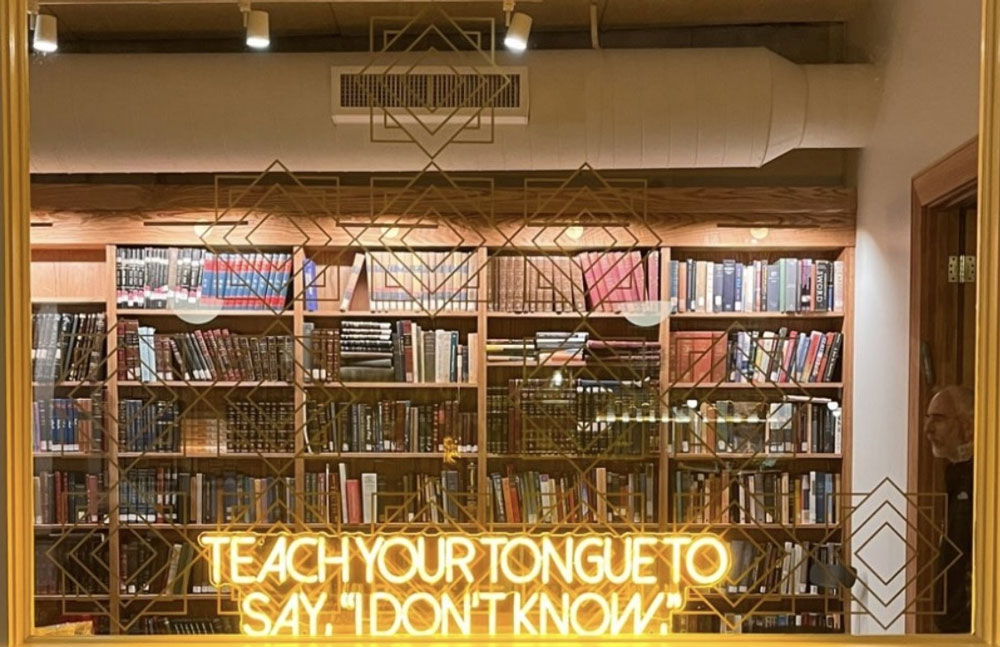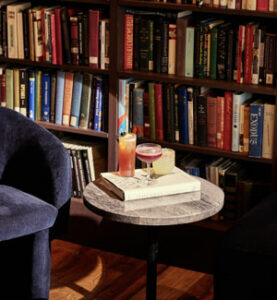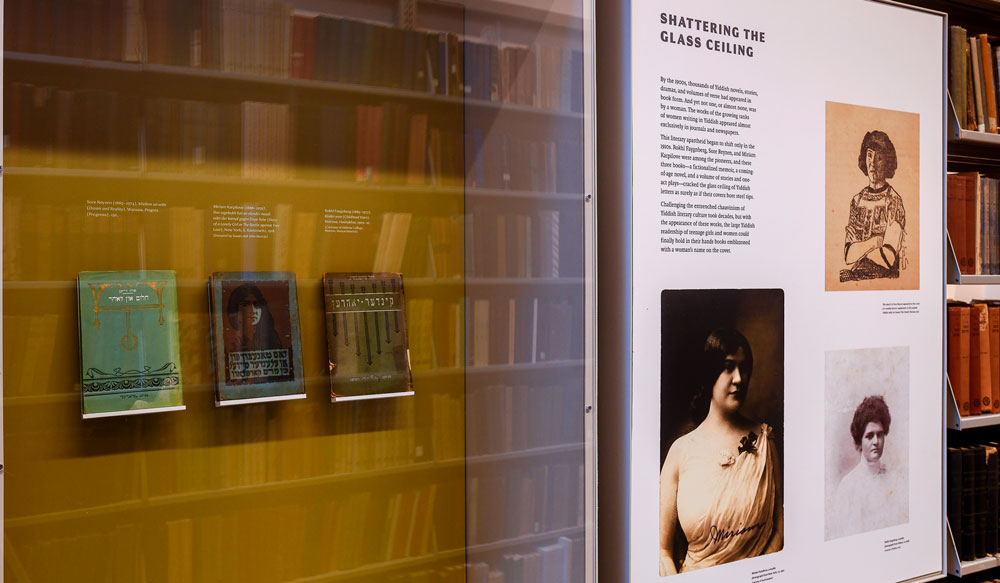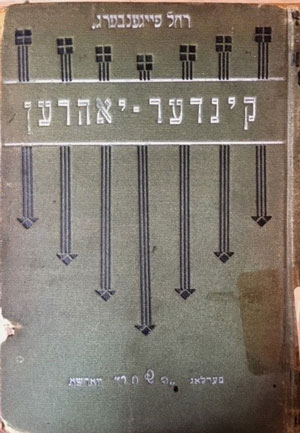Community Blog Hebrew College Books Find New Homes in Diverse Set of Jewish Organizations

You don’t have to return these library books! When planning for the move across Newton last January, Hebrew College took the opportunity to rehouse thousands of books with local and national organizations and universities, and to sell them to book dealers. The donated books went to dozens of institutions and individuals, including but not limited to Berklee School of Music, Cornell University, the Israeli American Council, Hebrew College partner Lehrhaus (pictured above), Newton Free Public Library, Northwestern University, University of Washington, and the Yiddish Book Center.
“I just love that the books Hebrew College donated to us are being used and filling the space in such a great way,” said Rabbi Charlie Schwartz, co-founder and director of Lehrhaus, a Jewish tavern and house of learning in Somerville, MA. “People love to look through them, grab a book and sit down and start learning or reading over a drink.”
The core of Lehrhaus’s collection of 3,000 books comes from Hebrew College, and they are given a new life in the innovative space provided by the tavern. “Books range from sifre kodesh like miqraot gelodot, and a super interesting set of combined Jerusalem and Babylonian Talmuds, to fiction (lots of Allegra Goodman!) and philosophy (lots of Spinoza!), to cookbooks,” explained Schwartz.
 Following national trends, in recent years the Hebrew College library has seen a decrease in print circulation and an increase in digital circulation, notes Harvey Sukenic, Hebrew College’s library director. Happily, the donated books have been able to find new life in their new homes. “I am thrilled that so many ended up in universities and other institutions of Jewish learning where they can be consulted and utilized,” said Provost Rabbi Dan Judson, who helped facilitate the donations. “The strength of the Hebrew College library these last years has been the depth of our collection in a few particular areas—modern Hebrew, Zionist history, American Judaica to name a few areas. But so many of these books were useful only for those doing highly specialized research in Jewish history which has not been part of our work for many years.” (Pictured: Lehrhaus)
Following national trends, in recent years the Hebrew College library has seen a decrease in print circulation and an increase in digital circulation, notes Harvey Sukenic, Hebrew College’s library director. Happily, the donated books have been able to find new life in their new homes. “I am thrilled that so many ended up in universities and other institutions of Jewish learning where they can be consulted and utilized,” said Provost Rabbi Dan Judson, who helped facilitate the donations. “The strength of the Hebrew College library these last years has been the depth of our collection in a few particular areas—modern Hebrew, Zionist history, American Judaica to name a few areas. But so many of these books were useful only for those doing highly specialized research in Jewish history which has not been part of our work for many years.” (Pictured: Lehrhaus)
The Yiddish Book Center in Amherst, MA was one of the grateful recipients. “It was one of the largest donations we have received in recent years—approximately 3,000 Yiddish books and journals. There were plenty of the usual suspects—sets of popular editions of the classic Yiddish writers and translations from French (Maupassant, Jules Verne), Russian (Tolstoy, Dostoevsky), German and English. But there were also plenty of rare books and one-off journals that we have rarely if ever seen,” said David Mazower, the Center’s bibliographer and editorial director. Hebrew College gifted 121 boxes of books and journals to the Center, which only turns away physically disintegrating books in Yiddish.
“We really are the open-door 24/7 literary equivalent of a homeless shelter! In the case of the Hebrew College collection, we had a lot of information about the titles before they arrived, so we knew it was a high-quality, serious library. Nonetheless, there were plenty of surprises, from obscure trade publications, to rare political materials,” added Mazower.

 Many of the books have been integrated into the Yiddish Book Center’s existing collections, a process that took many weeks to sort out. In a few exceptional cases, they are exhibiting volumes from the Hebrew College collection in their new core exhibition, “Yiddish: A Global Culture.” (One example of this is Kinder-yorn (Childhood Years), a fictionalized memoir by the highly regarded writer Rokhl Faygnberg (Pictured above and right). “It’s exceptionally rare as a hardcover title, and we are featuring it, along with two other rare early books by Yiddish women writers,” said Mazower. “In my six years at the Yiddish Book Center, this was the first time I had seen this title in hardcover form, so it was thrilling to unpack it, and think about how to share it with a much wider public.”
Many of the books have been integrated into the Yiddish Book Center’s existing collections, a process that took many weeks to sort out. In a few exceptional cases, they are exhibiting volumes from the Hebrew College collection in their new core exhibition, “Yiddish: A Global Culture.” (One example of this is Kinder-yorn (Childhood Years), a fictionalized memoir by the highly regarded writer Rokhl Faygnberg (Pictured above and right). “It’s exceptionally rare as a hardcover title, and we are featuring it, along with two other rare early books by Yiddish women writers,” said Mazower. “In my six years at the Yiddish Book Center, this was the first time I had seen this title in hardcover form, so it was thrilling to unpack it, and think about how to share it with a much wider public.”
“It’s wonderful to know that a piece of Hebrew College is finding new life all around new England,” said Judson. “We couldn’t be happier.”
Adult Learning Classes Professional Development Support Our Work

